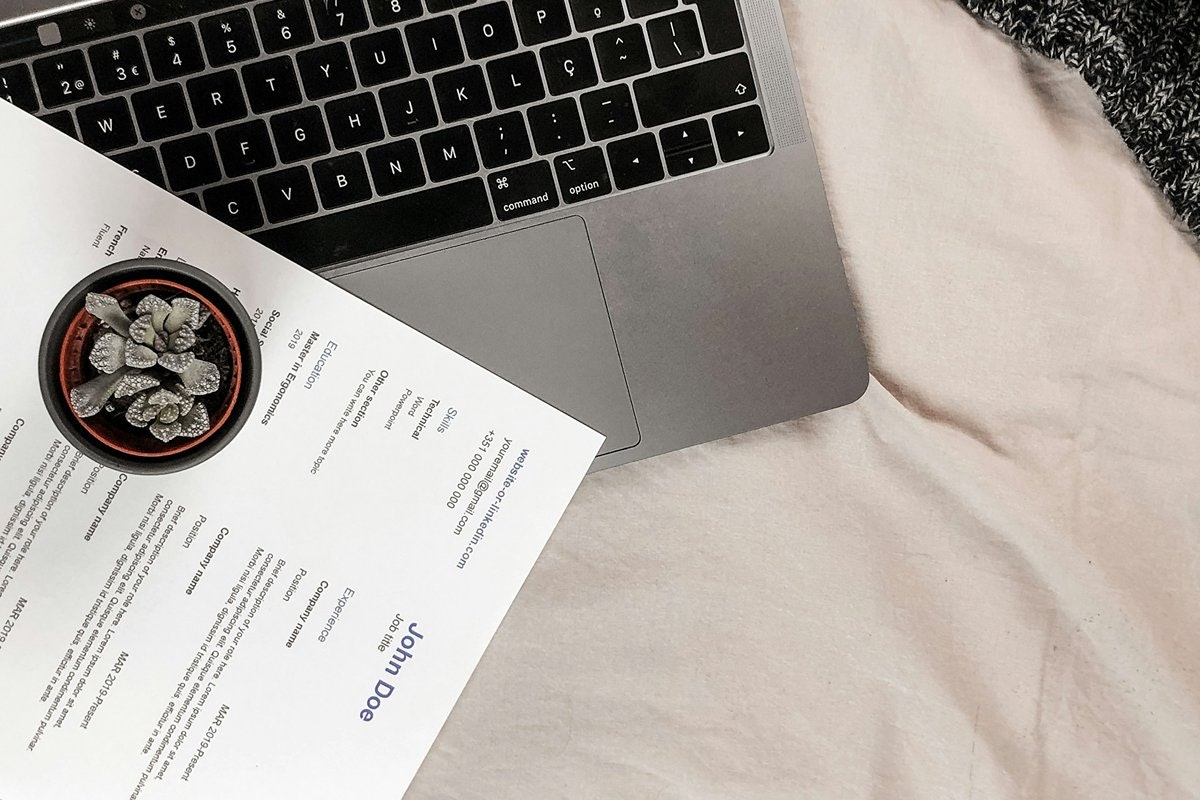A local's guide to nailing your job interview in Australia
Undertaking a job interview in english can be stressful! Read on to learn how to prepare, common questions to practice, and what to expect on the day!

By:
LINA AVILA HENAO
Last Updated:
Jun 18, 2025
Tags:
#job-interview #work
In this article
You did it! After sending many resumes you have been listed for an interview. Congratulations!! That means that you have done well on your resume and that you are a potential candidate for the role.
It is understandable that it is nerve racking to be in front of people that you do not know, telling them your professional life in english. However, you should think about the interview process as an opportunity to tell them about how amazing you are, how strong your skills are and why your knowledge and experience will contribute to the company.
Also think that if you got to the stage of the interview it is because they are interested in your curriculum and definitely they want to hear from you.
Nailing the interview in the first try is not an easy task, it requires research and preparation but it is absolutely possible that with good practice you can succeed.
Let’s start with the tips which we have divided in stages to better structure the process
First stage: Preparation
Research
It is time to do intelligence! Research information about the company specially related to the mission, vision and type of products.
Check the department in which you will be working, learn about what they do and if possible try to find who will be your potential boss within the company. Once you have identified the people that work there, have a look at their profiles and their areas of specialisation. It is very probable that some questions during the interview come from there.
Check for interesting facts about the company so you can have something to grab in case you need it, for example it could be that the company contributes to sustainability of the region or the company has a social focus contributing to the economy of the state.
Be aware of the company’s values
Check if your personal and professional values will match with the values of the company and elaborate a paragraph about this. I find this essential for being prepared and have an advantage in an interview. The reason is that Australian companies are looking specifically for someone that is going to adapt to their work environment and culture, someone that will enjoy the job and that will be able to deliver effective results under those circumstances. For the companies it is crucial that you fit within those parameters because they will invest in training and will spend time and effort to build skills on you.
Prepare the answers in advance
After you have done your research, start to formulate possible questions and write down the answers or at least bullet points. You can have a look online about “possible questions in an interview” for your specific professional field.
I have found that as English is not my first language it is very hard for me to improvise in an interview whilst I am nervous. So I prefer to build a structure on paper with questions and answers, then internalise and practice what i have written and then in my mind everything will be more clear and it would be easier to fabricate a response.
Some of the most common questions are
Tell me about you
What do you know about the company?
Why would you like to work here?
Why do you think you would be a good fit for the company?
They can make specific questions of your resume so make sure you know everything you wrote down and you feel comfortable talking about it.
Let’s use the question “Why do you think you are a good fit for the role?” as an example
Structure that I have ready in my head
Talk about how much my values are aligned with the values of the company.
Talk about former work experience that is relevant for the position and for the company.
Talk about your skills and how much value that would add to the company.
Behavioural questions
In Australia, these types of questions are designed to see how you have managed situations in your current or previous roles and what has been the outcome.
For example, tell me a time where you received a negative feedback from a previous boss and how you managed it, or maybe something like tell me a time you had received a complaint from a customer and how you solved it?
For this type of question I strongly recommend the STAR method. STAR is an acronym that stands for Situation, Task, Action and Result.
Situation: you set up the scene where the facts occurred
Task: Mention how you were involved with the situation
Action: Explain what action you take? What did you do about that?
Result: Talk about how you contribute to closing the situation in a positive way.
I definitely recommend preparing some of them, or at least have the examples ready otherwise making it on the fly is very difficult.
Talking about your skills
The most important thing here is to show that you can do the job and why you would be great at it. For example, mention that you have previous experience doing that process, or that you have worked with that product for a certain number of years. Another aspect is the leadership, you can mention that you have managed teams of X amount of people and that you are a great leader.
Also mention that you learn fast and that you are keen to learn new skills as well.They value the fact that you are willing and open to be taught.
Dresscode
Do not wait till the morning of the interview to decide the outfit that you are wearing, do it with time in case you discover a stain on your blazer or if you are planning to wear or something that needs special ironing you probably will not have time that day.
Do not overdress but also do not go too casual! I have found that when you are comfortable with what you are wearing, and you feel you are dressing properly you do not have to think or worry about that aspect during your interview and you can focus your attention on the questions.
Second Stage: Practice
Do I have enough time to practice?
Normally, the company will contact you to ask you for availability on the phone, and once you mention when you are available they will send you an email. Generally you will have a week or a bit less than a week to prepare, so make the most of your preparation stage.
Tell the history several times
Once you have your script prepared, practice in front of the mirror. That will give you a lot of security and confidence. You can also ask a friend or family member if they can formulate the questions for you and you could answer in front of them, it will feel more real.
Ask for feedback
Ask the person that is helping you to practice for an honest opinion on how you are doing it. Ask if your voice is at the right volume or if you are expressing the ideas properly and are clear with your explanations. Maybe ask how your body language was and if you are modulating properly your hands, this is important because overmodulation can be distracting and can be a sign of insecurity.
Third stage: on the interview
Remember, Just be you!!!
Do not try to fabricate or fake facts on your answers, it is very likely that the interviewer will notice this sort of thing. The more genuine and authentic you look the better!
Do not overthink!
When you are on the interview answering the questions avoid thinking about what the interviewer will think about you or about your accent or the way you are dressing. Think of you as a top talent and how lucky they will be to have you. You just need to sell yourself professionally in a strategic way.
Be on time/early
Punctuality is a critical aspect. You should be 15 minutes before the time that they said, assuming that you already know where the place is. If the day of the interview arrives and you do not know where the place is, I truly recommend leaving your house with a lot of time in advance. Remember that finding addresses in Australia is different and sometimes the public transport is unreliable. If you have a car you have to make sure that there are places where to park in the area. Sometimes car parks are full and you don't have anywhere to leave the car.
Do not be negative about former jobs/roles
It might be obvious but try not to say anything bad about previous experiences and try to frame things in a positive way. For example if they ask you what was the reason you left your previous role, you should not say “I quit because the management of the project was terrible” instead you should say “I am looking for more responsibility in the project and the pathways were not open there’
Handling random questions
It is very likely that you will be asked questions that you have not thought about. It is ok! do not panic, try to breathe and think of the best answer. You do not need to rush to answer. Think about the answer before responding to the question.
Sometimes you will not be able to believe how weird the questions are, but remember often the interviewer (probably your future boss) only does this once every few years (unless it's an HR department or recruiter) and he is as nervous/inexperienced as you are!
The money question
Sometimes they will ask for how much salary you expect. For this one I recommend to look how much the position has been advertised for (this information could be available on Seek.com or Indeed.com) and respond to something within that range. If you ask for a large amount it is possible that this affects their decision of giving you the job but do not be afraid of asking for a decent amount. You are not obligated to answer this question - you can be vague or say ‘I'm confident we will find an amount we are both happy with’ to let them make the first offer. It's very much a personal preference whether to answer this or not.
They may also ask you about how much you earned in previous roles - you do not need to answer this question! it is not allowed, but many interviewers do it anyway.
Another common question is when is the soonest you can start. In this case be honest and tell them when is the closest time that you can start. Do not be afraid if you are in another job, you just need to notify two weeks in advance (in the majority of cases) and tell the new employer when is your commencement day. The majority of companies consider this aspect for the contracting process.
Have some questions up your sleeve
Sometimes interviewers ask you if you have any additional questions. You should always ask at least one, ideally more!
Here, I recommend asking something along the lines of “How would a day look in this role for me?”, “What are the company standards towards professional development?”. Maybe something that called your attention about the company that you found in your research. If it has not been mentioned before, perhaps ask who would you report to?
Always smile!
No matter what is happening in the interview, do not forget to smile. Sometimes the interviewer can make a not very nice comment that can discourage you but I think that could be an strategy to see how you react or handle the situation.
Also, sometimes the interviewer is frowning or making a bad face, do not let that affect you and keep smiling.
To finalise
We hope you can apply this tips when you have your next interview and remember that the best way to prepare is practicing.
Remember to always give yourself credit for your progress because you have reached the interview stage and surely you are close to finding the dream job.
The best way to learn from interviews is attending many of them, so do not worry if things do not result as you would like the first time.



